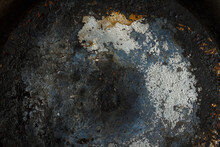What Do Professional Window Cleaners Use To Clean Windows
When it comes to keeping our windows clean and sparkling, many of us turn to professional window cleaners for their expertise and tools. Professional window cleaners have access to a range of specialized equipment and cleaning solutions that help them achieve streak-free and spotless windows. In this article, we will explore the tools and techniques that professional window cleaners use to clean windows effectively.
The Essential Tools of Professional Window Cleaners
Professional window cleaners rely on a variety of tools to ensure a thorough and efficient cleaning process. Here are some of the essential tools they use:
- Squeegees: Squeegees are the go-to tool for professional window cleaners. They consist of a rubber blade attached to a handle and are used to remove water and cleaning solution from the glass surface. Squeegees come in different sizes to accommodate various window sizes and shapes.
- Scrapers: Scrapers are used to remove stubborn dirt, paint, or adhesive residue from windows. They have a sharp blade that can be replaced when it becomes dull. Professional window cleaners use scrapers with caution to avoid scratching the glass.
- Extension Poles: Extension poles allow window cleaners to reach high windows without the need for ladders or scaffolding. These poles can be adjusted to different lengths and are often made of lightweight materials like aluminum or fiberglass.
- Buckets: Buckets are used to hold water, cleaning solutions, and tools during the window cleaning process. Professional window cleaners often use two buckets, one for clean water and another for dirty water, to prevent cross-contamination.
- Microfiber Cloths: Microfiber cloths are highly effective in removing dirt, dust, and streaks from windows. They are gentle on the glass surface and leave no lint behind. Professional window cleaners use microfiber cloths for detailing and polishing the windows.
- Water-Fed Pole Systems: Water-fed pole systems are becoming increasingly popular among professional window cleaners. These systems use purified water that is pumped through a telescopic pole with a brush attachment. The brush agitates the dirt on the window, and the purified water rinses it away, leaving a spotless finish.
The Role of Cleaning Solutions
Professional window cleaners also rely on specific cleaning solutions to achieve optimal results. Here are some commonly used cleaning solutions:
- Window Cleaning Detergents: Window cleaning detergents are specially formulated to remove dirt, grime, and grease from windows. They are often mixed with water and applied to the glass surface using a sponge or applicator.
- Vinegar Solution: Vinegar is a natural and cost-effective cleaning solution that many professional window cleaners use. It can effectively remove water spots, streaks, and mineral deposits from windows. A mixture of vinegar and water is applied to the glass surface and wiped clean with a squeegee or cloth.
- Ammonia-Based Cleaners: Ammonia-based cleaners are known for their ability to cut through tough grime and grease. However, they should be used with caution as they can damage certain types of window frames and finishes. It is essential to follow the manufacturer’s instructions and use appropriate safety precautions when using ammonia-based cleaners.
- Specialized Glass Cleaners: There are various specialized glass cleaners available in the market that are specifically designed for different types of glass surfaces. These cleaners are formulated to provide streak-free results and are often preferred by professional window cleaners for their effectiveness.
Frequently Asked Questions
1. Can I clean my windows with just water and a cloth?
While water and a cloth can remove some dirt from windows, it may not be sufficient for a thorough cleaning. Professional window cleaners use specialized tools and cleaning solutions to achieve streak-free and spotless windows.
2. How often should I have my windows professionally cleaned?
The frequency of professional window cleaning depends on various factors such as the location of your property, the surrounding environment, and personal preferences. In general, it is recommended to have your windows professionally cleaned at least twice a year.
3. Can I use newspaper to clean my windows?
Newspaper was commonly used in the past to clean windows due to its absorbent properties. However, it is not the preferred method anymore as it can leave ink residue on the glass. Microfiber cloths are a better alternative as they are lint-free and provide excellent results.
4. Are there any eco-friendly window cleaning solutions available?
Yes, there are eco-friendly window cleaning solutions available in the market. These solutions are made from natural ingredients and are free from harsh chemicals. They are a great option for those who prioritize environmental sustainability.
5. Can professional window cleaners clean windows in high-rise buildings?
Yes, professional window cleaners are equipped to clean windows in high-rise buildings. They use specialized equipment such as water-fed pole systems and have the necessary training to ensure safety while working at heights.
6. How long does it take for professional window cleaners to clean windows?
The time taken to clean windows by professional window cleaners depends on various factors such as the size of the property, the number of windows, and the level of dirt and grime. On average, it can take a few hours to clean all the windows of a standard-sized house.
Summary
Professional window cleaners use a range of specialized tools and cleaning solutions to achieve streak-free and spotless windows. Squeegees, scrapers, extension poles, buckets, microfiber cloths, and water-fed pole systems are some of the essential tools used by professionals. Cleaning solutions such as window cleaning detergents, vinegar solutions, ammonia-based cleaners, and specialized glass cleaners play a crucial role in achieving optimal results. It is important to hire professional window cleaners for a thorough and efficient cleaning process, especially for hard-to-reach windows or large properties.




